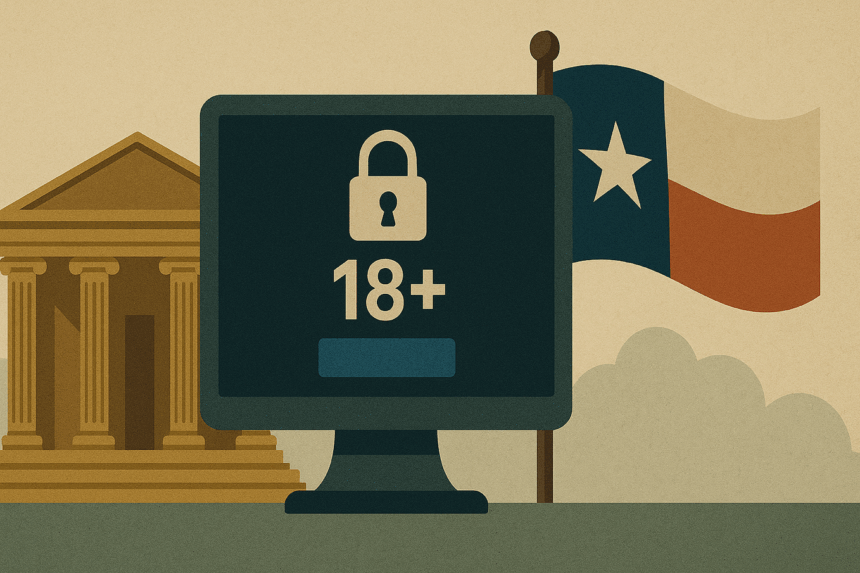The U.S. Supreme Court (SCOTUS) has ruled that Texas can require porn websites to verify visitors are at least 18 years old before accessing adult content. The 6-3 decision confirms that asking for age verification does not violate free speech rights. This ruling affects how states protect children online while balancing adult access to legal content.
What’s Happening & Why This Matters
On June 23, 2025, the Supreme Court upheld Texas House Bill 1181, a law mandating commercial websites with adult content to use reasonable age verification methods. Justice Clarence Thomas, writing for the majority, explained that preventing minors from viewing sexually explicit material is within a state’s authority. The Court ruled that this law does not infringe on the First Amendment because the regulation targets material that lacks constitutional protection when accessed by children.
This law applies to websites where at least one-third of the content is classified as “sexual material harmful to minors.” It requires sites to verify that users are 18 or older through either a digital ID or a commercial age verification system that utilizes government IDs or transactional data. Notably, the law prohibits websites from retaining any personally identifiable data collected during this process.
Failure to comply carries heavy fines: $10,000 daily per violation and up to $250,000 each time a minor accesses restricted content. Additionally, the law requires sites to display health warnings stating that pornography can be addictive and harmful, though the Court did not rule on this compelled speech.

Justice Thomas emphasized that age verification is “an ordinary and appropriate” way to enforce age limits, drawing parallels to longstanding practices, such as requiring identification for in-person sales of adult material. He noted that while adults might face some inconvenience, this burden is minor compared to the goal of shielding children.
However, the ruling sparks privacy concerns. Justice Elena Kagan dissented, acknowledging the state’s interest in protecting children but warning that the law places the privacy of adults at risk. She worried that handing sensitive data to websites or verification services exposes users to potential hacking, misuse, or sale of their information. Kagan argued the law should better safeguard adults’ free speech rights and minimize privacy invasions.
This decision also affects a growing number of states with similar age verification laws. Currently, 22 states require some form of age checks on porn sites. Many adult sites now block all users from those states to avoid compliance, or have users resort to VPNs to bypass restrictions.
Privacy advocates have criticized current age-verification systems for demanding excessive personal information. Yet, new privacy-preserving methods are emerging. For example, Google recently integrated a “zero-knowledge proof” system in its Wallet app, allowing users to prove their age without revealing other personal details. This tech might shape future compliance solutions.
The debate extends beyond pornography. Similar age-verification proposals target social media, app stores, and other online platforms, reflecting ongoing concerns about protecting minors in digital spaces.
The case, Free Speech Coalition, Inc. v. Paxton, began with adult industry groups challenging the Texas law. They called the ruling “disastrous,” claiming it chills free expression and privacy online without effectively blocking minors. Meanwhile, Texas Attorney General Ken Paxton praised the decision as a “major victory” for families and states’ rights to shield children from harmful content.
TF Summary: What’s Next
The Supreme Court’s ruling strengthens states’ power to impose age verification on online adult content. While protecting minors remains a priority, concerns about adult privacy and free speech persist. The industry must carefully distinguish between these interests.
Expect states to consider similar laws, and technology firms to develop privacy-focused age-verification tools. The rise of cryptographic solutions, such as Google’s zero-knowledge proof, may offer safer ways to confirm age without compromising anonymity.
The debate over digital privacy, free speech, and child safety is not over. Lawmakers, users, and innovators will continue to navigate this complex issue’s nuisances.
— Text-to-Speech (TTS) provided by gspeech


